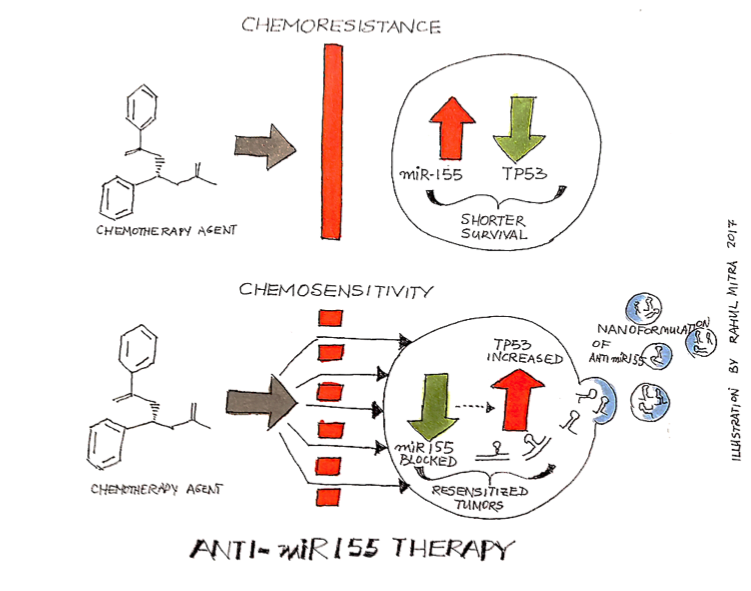02.06.17 last updated.
02.06.17 last updated.
The microRNA miR-155 plays a significant role in physiological and pathological processes in humans by blocking the functions of functionally important messenger RNAs of protein coding genes. We found that miR-155 was present in higher levels in cancers resistant to chemotherapy. By studying the association of miR-155 and tumor suppressor TP53 with cancer survival in 956 patients with lung cancer, chronic lymphocytic leukemia and acute lymphoblastic leukemia, we demonstrated that miR-155 induces resistance to multiple chemotherapeutic agents in vitro, and that blocking or down-regulating miR-155 successfully resensitizes tumors to chemotherapy in vivo. We found that high levels of miR-155 and low levels of TP53 characterize the tumors from lung cancer patients with shorter survival time. Our findings support the existence of a miR-155/TP53 feedback loop involved in resistance to chemotherapy. To target this feedback loop and effectively alter resistance to therapy, we have developed a therapeutic nanoformulation of anti-miR-155 in a lipid nanoparticle (DOPC) and have shown it to be non-toxic in vivo for further pre-clinical work.
We thank our co-authors for their work and discussions that led to this blog.

There are no comments.